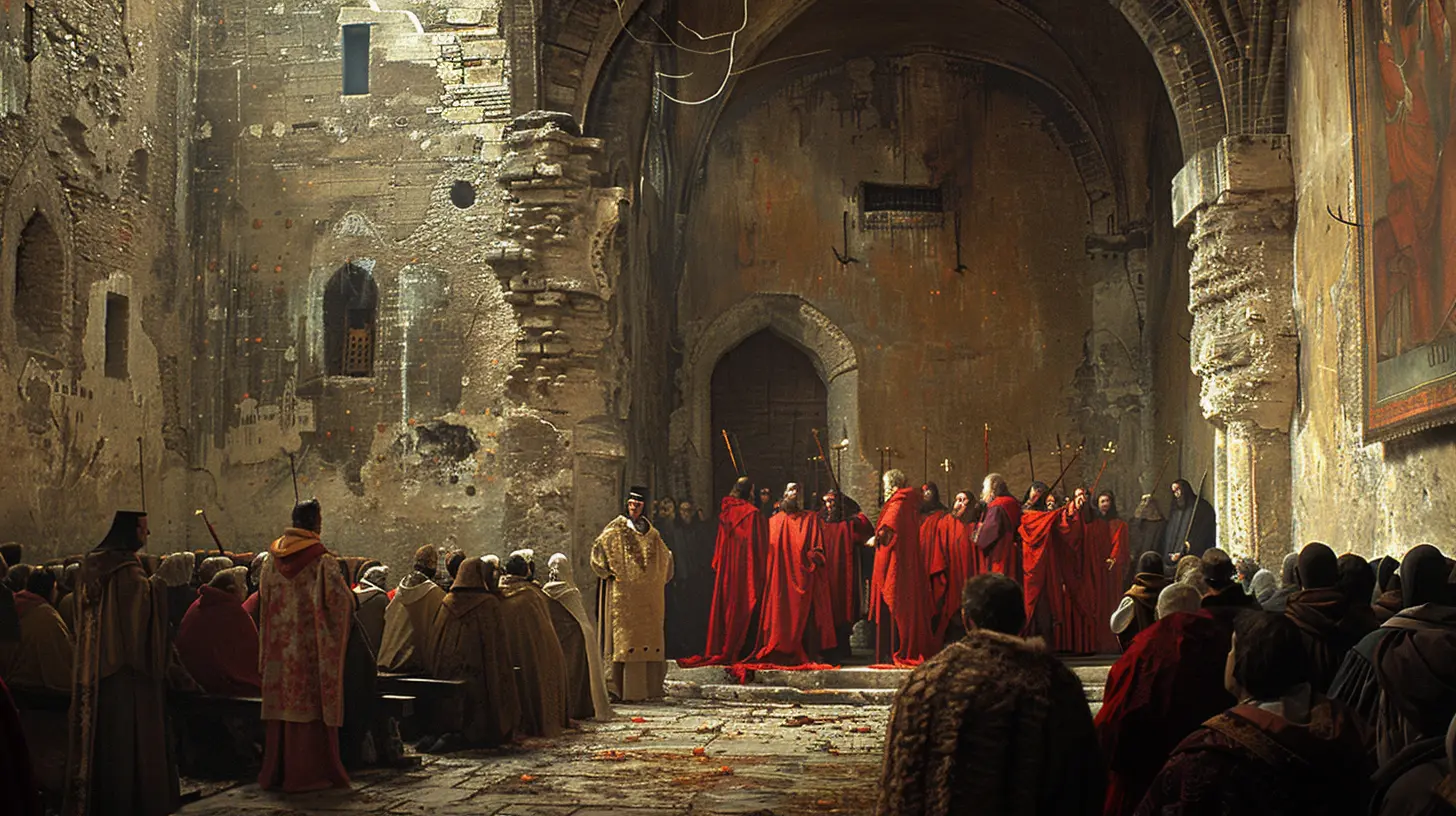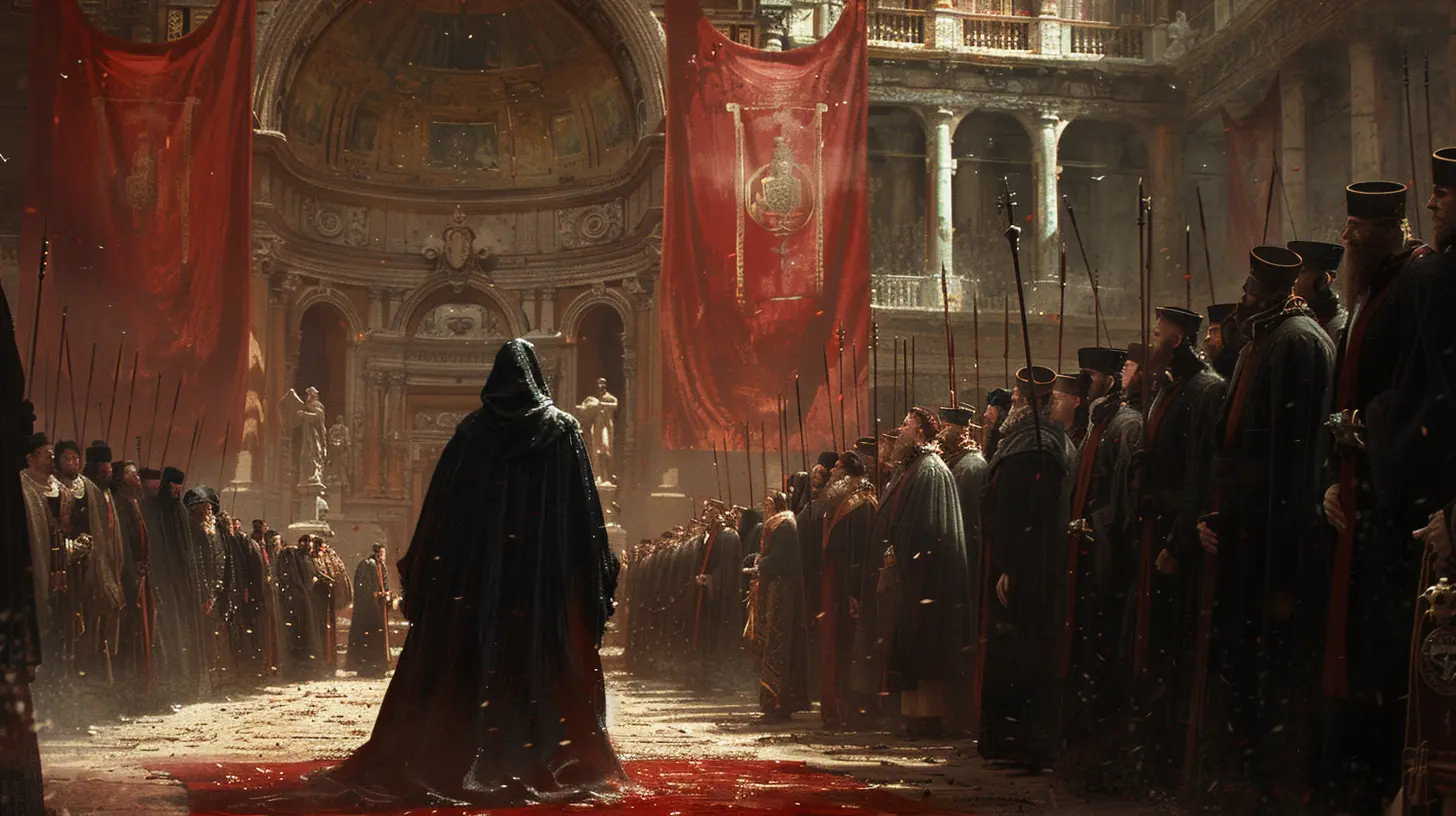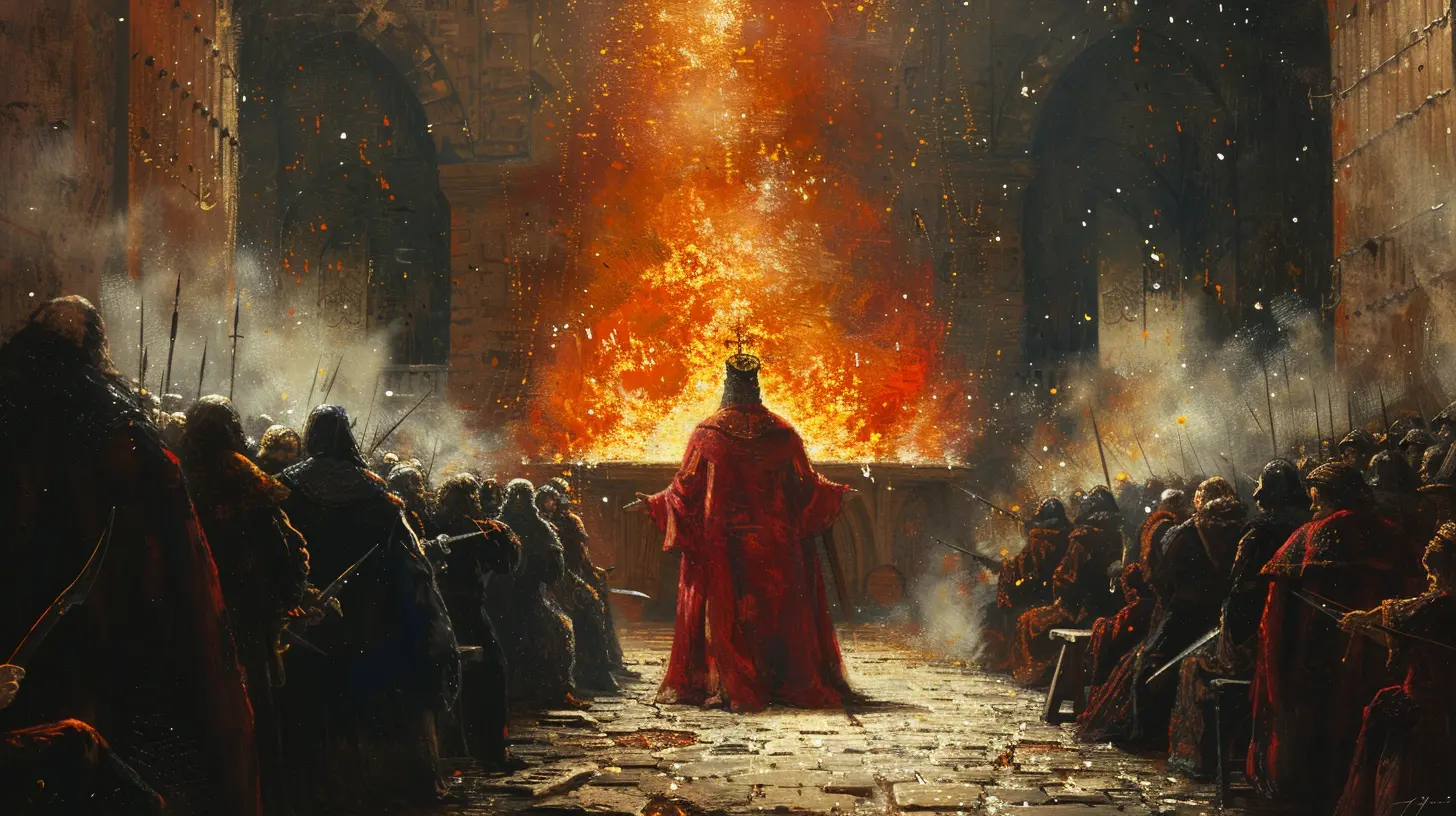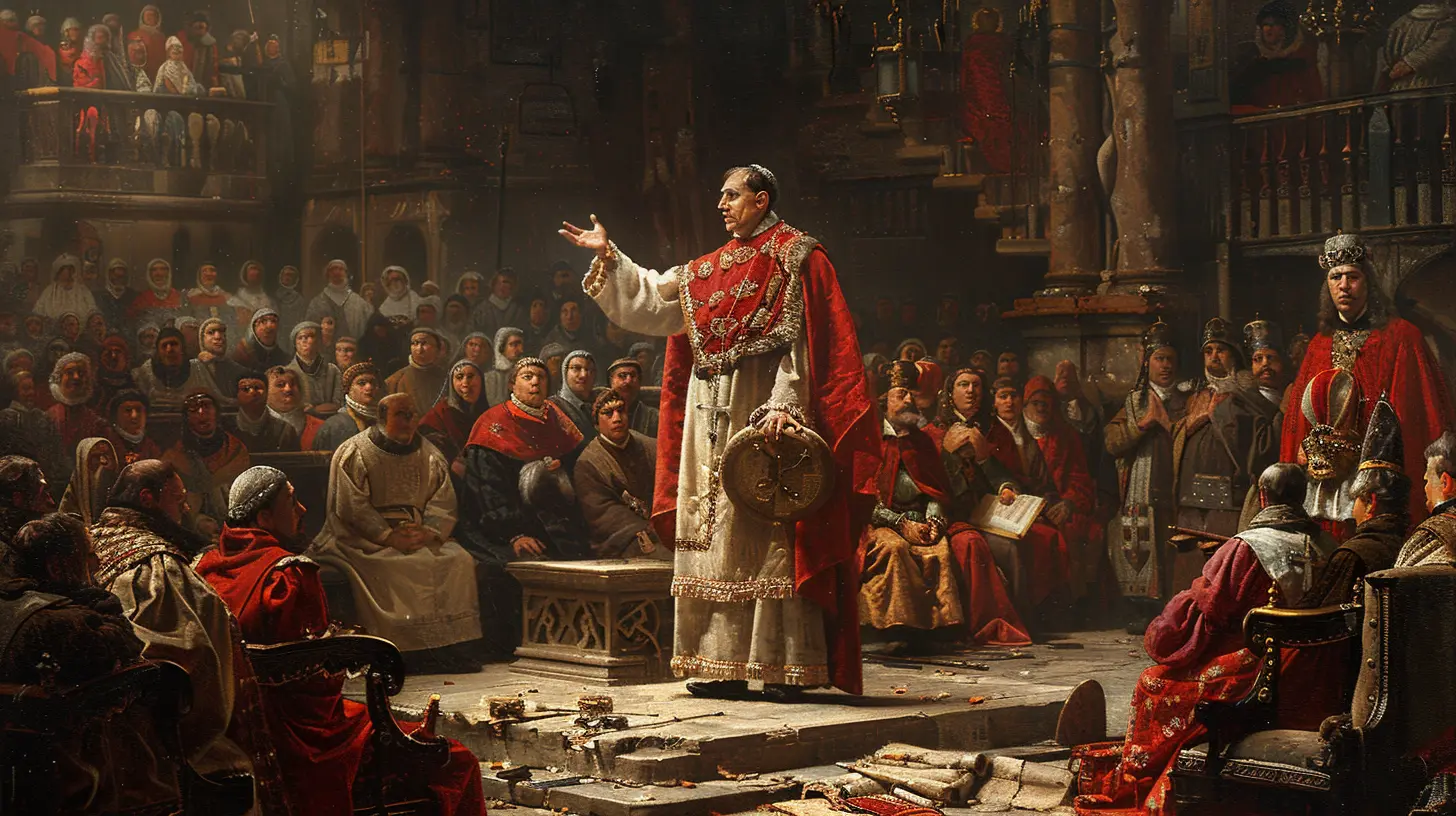How the Spanish Inquisition Shaped European History
8 August 2025
When you hear the phrase "Spanish Inquisition," your mind probably jumps to images of torture chambers, inquisitors in red robes, and fearful whispers in the dark. That’s not too far off—but there’s way more to the story. Believe it or not, the Spanish Inquisition didn’t just affect Spain or religion; it sent shockwaves throughout Europe and played a massive role in shaping the course of European history.
Let’s take a deep dive into how one of the most infamous institutions in history helped mold the continent—culturally, politically, and even economically.
What Was the Spanish Inquisition, Really?
Alright, first things first—what are we talking about here? The Spanish Inquisition officially kicked off in 1478 when King Ferdinand II of Aragon and Queen Isabella I of Castile got the Pope’s blessing to root out heresy in their newly unified Catholic kingdom. Basically, they wanted to make sure everyone—especially converted Jews and Muslims—was really, truly Catholic.But here's the kicker: it wasn't just about religion. Sure, on the surface, it seemed like a religious crackdown, but underneath? Power, politics, and paranoia played a big role too.
A Tool for Political Power
Let’s be real—religion and politics have always been a bit tangled, haven’t they? The Spanish monarchy knew that controlling religion meant controlling people. So, while the Inquisition claimed to defend Catholic purity, it also conveniently:- Weakened rival political powers (like the nobility and wealthy non-Catholics)
- United the kingdom through forced religious uniformity
- Shored up the monarchy’s authority
Think of it like this: if you can decide what people believe, you kind of control what they do, right? That’s some serious influence. By branding dissenters as heretics, the monarchy could silence opponents and create a well-oiled Catholic machine.
Social Control: The Fear Factor
Imagine living in a world where saying the wrong thing—or even not saying anything—could get you arrested for heresy. Wild, right? That was everyday life under the Inquisition.This fear led to mass conformity. People were scared stiff of stepping out of line. In a strange way, the Inquisition created one of Europe’s first systems of mass surveillance—long before technology did.
And the effects? People changed how they talked, behaved, and even how they thought. The Inquisition didn’t just police actions; it policed minds.
Economic Consequences You Never Saw Coming
Now, you might not think something so religious and brutal would have long-term economic effects, but it totally did.Many of the Inquisition’s early victims were Jewish converts accused of secretly practicing Judaism. These people were often well-off, educated, and heavily involved in trade and finance. When they were exiled or executed, Spain lost a huge chunk of its economic engine.
It’s like taking all your best players out of a game and expecting to keep winning. Spoiler alert: you don’t.
Over time, Spain’s economy suffered. By eliminating entire communities of skilled craftsmen, merchants, and professionals, the Inquisition indirectly paved the way for Spain’s economic decline in the centuries to come.
Science and Innovation Took a Hit
Now let’s talk about something that really makes you scratch your head. While the rest of Europe started embracing the Renaissance and all the new ideas that came with it—art, science, exploration—Spain clung tightly to religious orthodoxy.Why? Because the Inquisition made questioning anything risky. If you were a thinker, philosopher, or early scientist, you had to be super careful not to say anything that could be interpreted as heresy.
So while folks in Italy, France, and England were experimenting and pushing boundaries, Spanish intellectuals were walking on eggshells. This created a huge brain drain and left Spain trailing behind in the fields of science and innovation.
How It Influenced the Rest of Europe
You might think the Inquisition was just a Spanish issue—but oh no, its influence spread far beyond Iberia.Many European leaders saw what was happening and either tried to copy it or steer totally clear. For example:
- In France, elements of the Inquisition were adapted during the Huguenot persecutions.
- In England, Catholic-Protestant tensions led to their own version of religious crackdowns.
- Throughout the Holy Roman Empire, religious authorities gained more ground by using heresy as a political tool.
In a weird way, the Inquisition helped normalize state-sponsored persecution. It taught Europe that if you wanted to rule effectively, controlling belief wasn’t just useful—it was necessary.
The Protestant Reformation: Pushback in Action
Now let’s spice things up. The Protestant Reformation in the early 1500s? Yeah, the Inquisition played a role in sparking that too.People across Europe were fed up with corruption in the Catholic Church, and the Inquisition became a poster child for that corruption. It was harsh, secretive, and unforgiving—everything reformers like Martin Luther rallied against.
So on one hand, the Inquisition was meant to keep heresy out of Spain. On the other hand, it stirred up so much resentment that it helped ignite one of the biggest religious revolutions in European history. Talk about a backfire.
Cultural Impact: Art, Literature, and Identity
The shadow of the Inquisition even crept into culture and identity. Have you noticed how Spanish literature and art often deal with themes of guilt, secrecy, and morality? It’s not a coincidence.Writers like Miguel de Cervantes (yep, the guy who wrote Don Quixote) navigated a delicate balance between creativity and caution. Artists and authors had to self-censor or risk being silenced.
Even centuries later, the legacy of fear and conformity lingered in Spanish society. The cultural psyche developed a cautious, reserved nature—something modern thinkers still trace back to the Inquisition.
The End of the Inquisition... Finally
After nearly 350 years, the Spanish Inquisition was finally abolished in 1834. By then, it had executed thousands and investigated tens of thousands more.Still, its effects didn’t vanish overnight. The systems of control it created—surveillance, censorship, religious policing—laid the groundwork for future authoritarian regimes, including Franco’s dictatorship in the 20th century.
So yeah, its fingerprints are all over Spanish and European history, even long after it shut its doors.
Why This Still Matters Today
You might be thinking, “Okay, that all sounds intense, but what’s it got to do with me?” Honestly, quite a bit.The Inquisition teaches us how power works—how it can be disguised as morality, how fear can control people, and how diversity (in thought, religion, and culture) is essential for a healthy society.
It also reminds us that history doesn’t just happen—it leaves marks. Some fade, but others shape entire nations and cultures for centuries.
So next time you hear the phrase “Spanish Inquisition,” don’t just picture dramatic robes and dungeons. Think big. Think about the political chess game, the cultural shifts, the economic collapses, and the intellectual stagnation it caused across Europe.
And maybe, just maybe, appreciate the value of questioning things—because that’s exactly what the Inquisition tried to suppress.
Final Thoughts
The Spanish Inquisition wasn’t just a dark chapter in religious history—it was a seismic event that shook the very foundation of Europe. It influenced politics, shaped cultural identities, redirected intellectual movements, and even helped inspire revolutions.Understanding it gives us a clearer lens on how belief, power, and fear can intersect—and why protecting freedoms (of speech, thought, and religion) is something we should never take lightly.
all images in this post were generated using AI tools
Category:
History LessonsAuthor:

Zoe McKay
Discussion
rate this article
1 comments
Joel McCartney
The Spanish Inquisition profoundly influenced European history by intertwining religious authority with state power, instigating fear and repression. Its legacy persisted in shaping cultural identities, fostering intolerance, and affecting colonial policies, ultimately demonstrating how institutional power can dictate societal values and historical trajectories.
September 4, 2025 at 12:23 PM

Zoe McKay
Thank you for highlighting the significant impact of the Spanish Inquisition on European history. Its intertwining of religious and state power indeed set a precedent for cultural identities and societal values that resonate even today.


